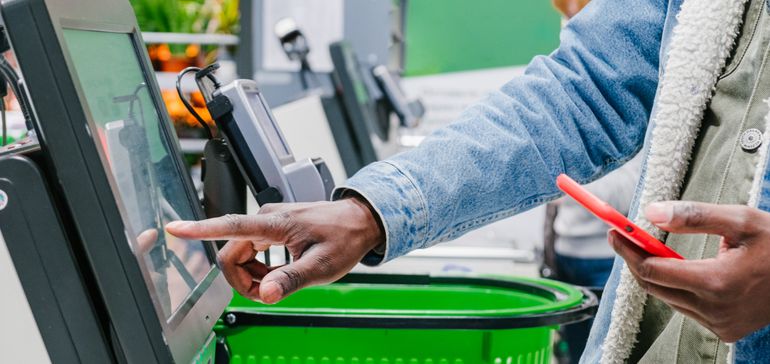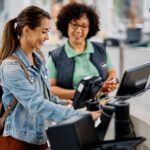Dive Brief:
- Signaling a rise in self-checkout technology demand, self-checkout terminal providers shipped 200,000 shipments internationally in 2021, but that figure is predicted to exceed 300,000 by 2027, according to RBR’s Global EPOS and Self-Checkout 2022 report.
- The global market for self-checkout terminals grew 11% in 2021. Terminals that accept cash dropped from nearly 47% of total shipments in 2020 to about 39% of total shipments in 2021, per the report.
- Conversely, the number of cashless self-checkout terminals shipped grew from a little over half to 61% between 2020 and 2021.
Dive Insight:
RBR, a London-based research and consulting firm founded in 1992, pointed to multiple catalysts driving self-checkout growth. Retailers in the Asia-Pacific region, primarily Australia, China, Malaysia and Indonesia, are driving growth by deploying the technology. Meanwhile, rising minimum wages and labor shortages in Canada, South Korea, Poland and other countries could also drive an increase in self-checkout demand.
Per RBR’s findings, both high-volume and specialty retailers have begun deploying the technology, including companies as varied as Bed Bath & Beyond, Spinx and Royal Farms. As more retailers roll out cashless self-checkout kiosks, they are also redesigning their checkout areas to accommodate more self-checkout units, RBR noted.
Retailers in the U.S. are also embracing self-checkout technology. Amazon has expanded its checkout technology at its own locations, including its Fresh grocery stores, and has also sold the technology to other retailers, with travel convenience store Hudson opening its first store using the tech at Dallas Love Field Airport last year. Last month, Dollar General began trying out self-checkout at about 200 of its more than 18,000 stores.
Though retailers are increasingly adopting self-checkout technologies, research suggests that the tools have room for improvement. Six in 10 respondents to a 2021 Raydiant survey said they preferred self-checkouts over store employees, but 67% said a self-checkout station had malfunctioned while using it, and 65% were worried about their cleanliness.
Self-checkout technology is advancing in other ways. RBR’s report noted that some self-checkout terminals recognize items so that consumers don’t have to scan them. Russia’s X5 Retail Group also rolled out facial recognition software for payment at 50 of its supermarkets, according to the report.
In 2020, Kroger tapped Everseen, an Irish AI firm, to detect unscanned items at self-checkout terminals. In addition to reducing shrinkage, self-checkout providers are also developing technology to precisely detect items and verify customers’ ages when buying age-restricted items.






